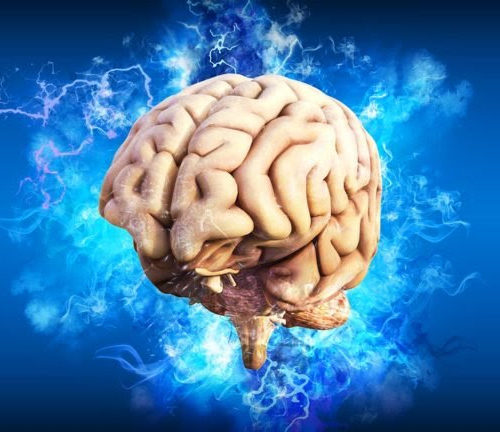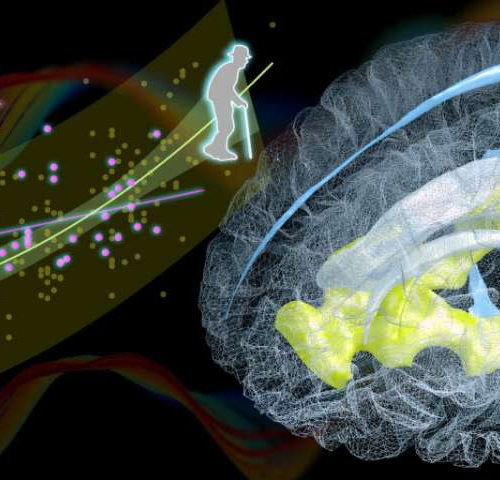A simple blood test that can detect Alzheimer’s disease (AD) has been discovered and validated in a joint effort by a McGill team and researchers in Sweden. Their results are published in the May issue of The Lancet Neurology. An accompanying commentary calls the discovery “transformative.” The blood test accurately measures one of the proteins...
Tag: <span>MRI</span>
Brain-scan abnormalities found in children with PANS
MRI brain scans show subtle changes consistent with inflammation in a severe childhood disease in which the immune system is thought to attack the brain, Stanford researchers found. Subtle abnormalities occur in key brain structures of children diagnosed with the pediatric acute-onset neuropsychiatric syndrome, a disease characterized by abrupt, severe behavioral problems, according to a...
A new biomarker for the aging brain
by RIKEN Researchers at the RIKEN Center for Biosystems Dynamics Research (BDR) in Japan have identified changes in the aging brain related to blood circulation. Published in the scientific journal Brain, the study found that natural age-related enlargement of the ventricles—a condition called ventriculomegaly—was associated with a lag in blood drainage from a specific deep...
MRI findings predict shoulder stiffness for rotator cuff tears
Joint capsule edema and thickness at the axillary recess prove useful in predicting stiff shoulder in patients with small to large (< 5 cm) full-thickness rotator cuff tears AMERICAN ROENTGEN RAY SOCIETY Leesburg, VA, February 19, 2020–Two MRI findings–joint capsule edema and thickness at the axillary recess, specifically–proved useful in predicting stiff shoulder in patients...
What is the difference between CT scans and MRI scans?
By Jenna Fletcher Reviewed by Debra Rose Wilson, PhD, MSN, RN, IBCLC, AHN-BC, CHT CT scans and MRI scans are two different medical imaging methods that create detailed images of internal body parts, such as bones, joints, and organs. Doctors order CT scans or MRI scans to help diagnose a wide range of medical conditions....
Study shows MRI can help remove DOUBT when diagnosing minor strokes
by University of Calgary A University of Calgary-led international study is highlighting the importance of magnetic resonance imaging (MRI) in helping to diagnose minor stroke and transient ischemic attacks (TIAs). The six-year study, which included researchers from hospitals in Canada, Australia and the Czech Republic, involved 1028 patients who experienced a number of symptoms that...
The Problem With MRIs for Low Back Pain
Studies suggest that routine imaging for low back pain is a waste of time and money that sometimes harms patients. Why does it persist? It’s a symptom of a well-diagnosed problem: the overuse of medical services. Unnecessary imaging isn’t confined to just low back pain. Americans spend more than $100 billion on various types of diagnostic imaging each year, much of which...
‘Mindful people’ feel less pain; MRI imaging pinpoints supporting brain activity
WINSTON-SALEM, NC – Sept. 6, 2018 – Ever wonder why some people seem to feel less pain than others? A study conducted at Wake Forest School of Medicine may have found one of the answers – mindfulness. “Mindfulness is related to being aware of the present moment without too much emotional reaction or judgment,” said...
MRI technique detects spinal cord changes in MS patients
A Vanderbilt University Medical Center-led research team has shown that magnetic resonance imaging (MRI) can detect changes in resting-state spinal cord function in patients with multiple sclerosis (MS). This first application of these measures in patients living with MS, reported last week in the journal Brain, could lead to new ways to monitor the effectiveness of...
Prostate MRI reveals more treatable cancers, reduces overdiagnosis than standard biopsy
Copenhagen: A large international study has shown that an MRI scan can reduce the number of invasive prostate biopsies by up to 28%. The PRECISION trial shows that using MRI to target prostate biopsies leads to more of the harmful prostate cancers, and fewer harmless cancers being diagnosed. Given that more than a million men...



